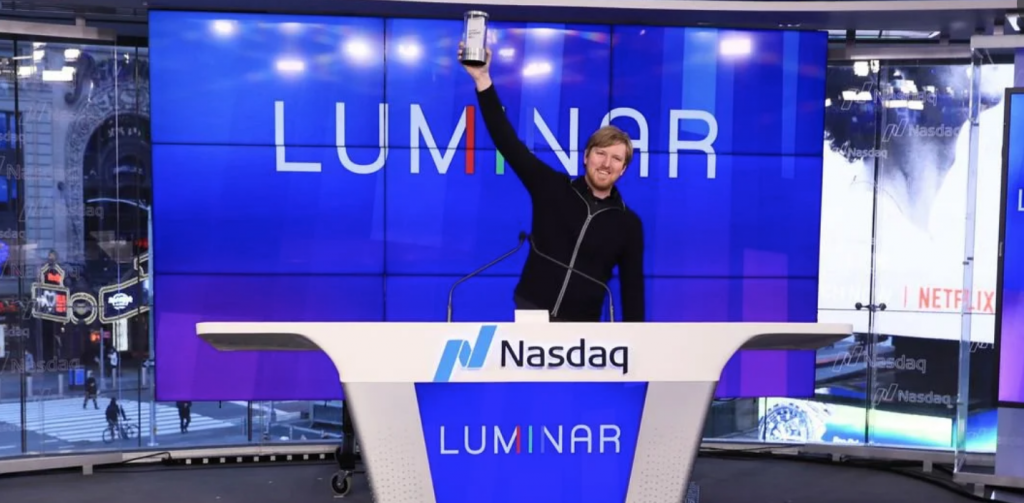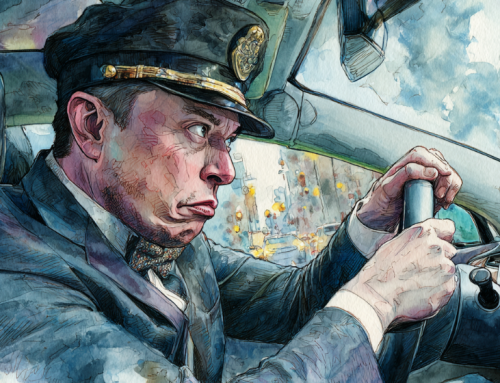
Austin Russel, the founder and CEO of Luminar, celebrates the company’s recent debut on the NASDAQ stock exchange. (Source: NASDAQ)
Luminar’s Founder Cites Accuracy, Support from Array of Automakers as Sign of Lidar’s Success
Is there such a thing as an “uncrashable” car? According to Andrew J.Hawkins’ story in theverge.com, there might be in the future because of a lidar which was recently tested by the company Luminar in New York City. The lidar can be retrofitted for regular cars at a cost of $1,000.
Austin Russell, the 26-year-old CEO of lidar-maker Luminar, led the company’s first live demo to the media recently, in which the company’s Iris lidar sensors were used on a Toyota RAV4.
Founded in 2012, the company recently went public in a $3.4 billion deal. The company plans to laser sensors embedded in the roof of Volvos starting in late 2022.
Luminar’s lidar uses long waves of laser light—1,550 nanometers versus the typical 905nm—which helps spot even small and low-reflective objects. Those may include dark-colored cars, animals, or a child darting into the street. It can “see” up at a range beyond 250 meters, and up to 500 meters for larger, brighter objects. Russell said the lidar’s resolution amounts to “300 points per square degree,” but says that “there’s no good standard of measuring lidar resolutions.”
“We’re actually moving towards the vision of zero collisions,” Russell adds, “building the uncrashable car.”
While Luminar has a long way to go to reach maturity, it plans to sell its products for everything from consumer cars to robotaxis to trucks. When the company is ready to go into production, Luminar has secured commitments from a number of companies to purchase its lidars. In addition to Volvo, the company has struck deals with Audi, Toyota Research Institute, Intel’s Mobileye, Daimler trucks, Airbus, and two Chinese companies: automaker SAIC and AV operator Pony.ai. Luminar may even have a partnership with Tesla, despite Elon Musk’s criticisms of lidar as a “crutch” and a “fool’s errand.”
What Would Musk Do?
No autonomous vehicle article would be complete without some reference to Elon Musk, who has driven the conversation on automated driving. His past verbal rejection of lidar has made it harder for Luminar to convince automakers that the laser sensor should be considered a valuable asset in the vehicle of the future. But that could be changing.
Russell declined to specify how his company relates with Tesla, citing “customer confidentiality.” He did note that Luminar sells its older Hydra lidar units to some customers doing “testing, development… data collection, [and] benchmarking.”
The two companies should have a lot to look forward to in the next decade. Maybe they really will create an uncrashable car—whether it’s credited to Luminar, Tesla, or even Mercedes—bringing the level of safety that autonomous vehicles have long promised.
read more at theverge.com







Leave A Comment